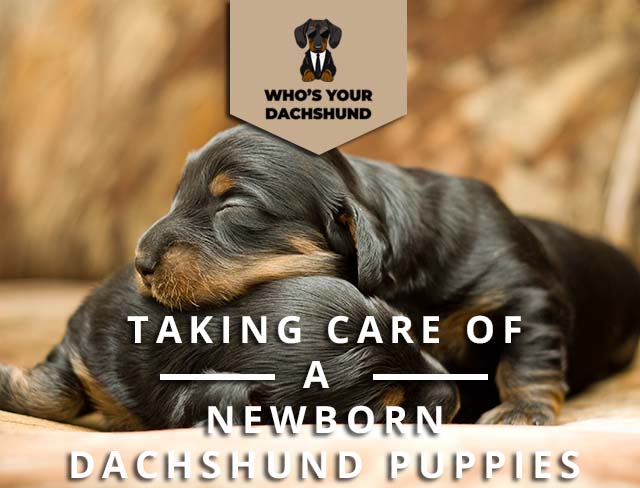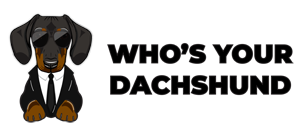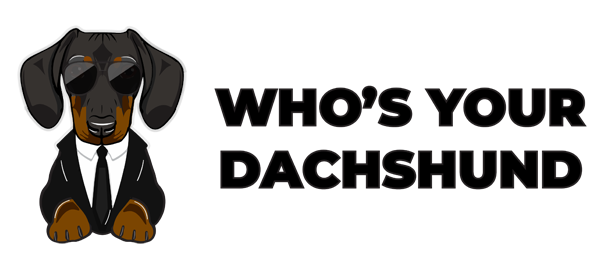
Dachshund puppies are cute and adorable, but they also need a lot of care. To make sure your new best friend is well cared for, we’ve compiled an extensive list of information about caring for newborn Dachshund puppies. This guide will provide you with everything from grooming and feeding to activities that you can do together.
Newborn Dachshund pups need to stay warm. Do not let your puppy’s temperature fall below 80 degrees, and make sure it doesn’t stay in a draft of any kind. While it’s tempting to snuggle up with a newborn pup, be careful not to cover your Dachshund with anything that will cause overheating or suffocation.
Table Of Contents
- Puppy stages: A week-by-week guide to caring for a newborn puppy
- How to Feed Newborn Dachshund Puppies
- Health Care Issues For Newborn Dachshund Puppies And How To Deal With It
- There Are 4 Stages In A New Dachshund Puppy’s Life.
- Summary
Puppy stages: A week-by-week guide to caring for a newborn Dachshund puppy
These for new Dachshund owners. Knowing what to expect and how best to care for your new puppy will make a world of difference in his development. Following these guidelines will ensure that your Dachshund puppy makes the most of its life.
Newborn dachshund puppies to 1st week – old Silent senses
It’s best to keep the new dog in a small area such as a bathroom. With its bed next to the bath or on the bath mat, a clean tiled floor is ideal for this tiny puppy. He should have toys available, as he will find them fascinating and will play with them frequently.
2 Week old Dachshund puppies – Energetic old senses
Your pup starts to gain coordination skills and uses paws and legs more appropriately. Watch your Dachshund closely, as it will tend to stand on its own so your pup is not knocked over. It is now a lively, social puppy that will demand attention and interaction with people and other dogs. On the other hand, he will get bored if left alone for long periods.
3 Week old dachshund puppies – old Social and Energetic senses
The puppy’s sense of hearing develops quickly at this stage, and he will begin to growl, yawn or bark. He will also notice noises and can become very excited by them. He can also now use his tail as a communication device. The tail is usually fairly wagging, so he will use it to express himself.
4 Week old dachshund puppies – Understands the concept of “right” and “wrong.”
He babbles, quiets down when people talk to him, and understands things on a more fundamental level, such as staying in one place, jumping onto a couch, etc. The puppy will begin to chew on household objects such as things he finds attractive, like a pen, paper clips, or his basket.
5 Week old dachshund puppies: Understands the concept of “stop” and “go.”
Once the puppy understands the commands’ no’ and ‘stop,’ you can teach him to sit. He will listen patiently, not entirely understanding what it means to sit yet.
6 Week old dachshund puppies: Understands the concept of “stay” and “come.”
He will understand basic commands such as ‘sit’ and ‘wait’ at this stage. He will begin to observe your face when you call him. To teach him to ‘come,’ you will need to keep food or toys insight (within his view) while calling him. As he will come more willingly when you are nearby, call for him and reward him with a treat.
7 Week old dachshund puppies – Understands the concept of “off” and “out.”
When the puppy has been trained to ‘stay,’ you can now teach it to ‘out.’ To teach this, say ‘off’ and lift one leg on command. Praise it for getting up so you can remove its vest or leash.
8 Week old dachshund puppies – Socializing with siblings.
A dachshund puppy begins to socialize more with other pups around this time, and it’s okay to begin taking him out and about. It is also a good idea to have him neutered (if the owner hasn’t already done so) as this helps him to calm down and shouldn’t have any adverse side effects on his health if it is done early enough in his life.
9 to 12 Week old dachshund puppies – Fear of the new.
It is the stage where the puppy begins to get a bit frightened of new situations. Your pup will be nervous at the sight of something new, like a vacuum or umbrella. Give it time, and it’ll adjust.
12 to 24 weeks old dachshund puppies – Chewing everything in sight.
A bored puppy will often chew on anything he can get his teeth on. And because the puppy is still a baby, he does not have the coordination skills to quickly pick up objects and put them down again. The good idea is to clip his nails regularly enough to prevent him from chewing but not too short that they interfere with his growth.
24th to 30th weeks old dachshund puppies – Getting used to being alone.
By now, the puppy is used to being left alone. It doesn’t notice you as much when you leave the house. He will often go off on his own to explore, but don’t worry if he goes missing for short periods as this is just a normal part of his development. The last stage of this period involves his health and wellbeing.
30 to 36 weeks old dachshund puppies – Getting used to new owners around.
It is the stage where the puppy will begin to accept new owners with a great deal of comfort. He won’t be bothered by the thought of other people being in his home, and he will quickly adapt to most situations. If he has been noticed a lot, he will more calmly accept your new lifestyle once you begin taking him out on walks.
36 to 48 weeks old Dachshund – Teenage doghood
Stage 12 begins when the puppy turns three months and ends at nine months. In this stage, the puppy reaches a high degree of autonomy and independence. This period is characterized by a complete loss of dependence on his mother and siblings. Although still dependent on his master, he can physically survive if need be. The adolescent dog spends much time alone, exploring the environment and practicing social interactions with other dogs to learn the rules that regulate social behavior.
How to Feed Newborn Dachshund Puppies
The first thing to learn about feeding newborn dachshund puppies is to feed them and why. Feeding newborn dachshund puppies should start right at birth.
Newborn Dachshund Puppies
Should be fed every 3 to 4 hours on a schedule of 1 ml per pound of body weight for their size. Please begin with quantity and adjust amounts based on their weight gain rate. Feeding decreases as they grow older.
1st Week Old Dachshund Puppies
It would be best if you started to wean them off the milk formula and begin to feed them on a more regular schedule. Along with this, you can begin to wean it off the antibiotics they received at birth and put them on a probiotic or beef-based puppy formula.
2nd Week Dachshund Puppies
It would help if you started to feed often during the night. This way, when they are awake, they can be fed around-the-clock. If you feel the need to increase their feedings go ahead and do so. Only feed as much as needed and slowly decrease the amount you give them as they grow. Along with this, wean them off the formulas and begin feeding them on either all food with a mixture of canned puppy food or puppy kibble.
3rd Week Dachshund Puppies
Continue to wean them off the formula and onto the regular feedings. Along with this, wean them off the probiotics or beef-based puppy formula and put them on a puppy kibble that has chicken or fish for the first ingredient on the label. Wean them off of their antibiotics and slowly decrease their milk formula doses as they grow.
4th Weeks Dachshund Puppies
Continue to wean them off of their formula and onto regular feedings. Along with this, wean them off the puppy kibble that had chicken or fish as the first ingredient on the label onto the regular dog food. It will ensure that they grow into healthy adult Dachshund and not a picky eater. Make sure to make it a quality food with real meat, vegetables, or grain for protein and vitamins, not just corn for carbohydrates.
5th Week Dachshund Puppies
By the time you reach five weeks, you should have completely phased out the food weaning them onto their regular diets. It is an excellent time to introduce them to the outdoors and playtime. If you feel that your puppy is ready for training at this age, it is also acceptable to begin to train them. Ensure it is in a controlled environment with other cats and dogs if possible.
6th Week Dachshund Puppies
At six weeks of age, you can begin giving them treats. You can give them a small treat every once in a while if they start to misbehave. Also, playtime is a great time to give them treats, and their training will benefit greatly from this. This way, you will not only bond with your puppy, but they will also get used to the training and treats.
7th Week Dachshund Puppies
By seven weeks, you may want to consider getting your puppy spayed or neutered. It would help if you were feeding them around this time should be the regular dog food. If you want to feed them something other than that, it should be grain-free food. Grain-free foods are a better alternative as there will be less chance of developing any allergies and better overall health.
8th Weeks To 4 Months Old Dachshund Puppies
Should be fed them a high-quality, grain-free food. There are many foods to choose from at this time. One of the most recommended brands is Acana, made in Canada that offers high-quality dog foods with no corn or grains and has real meat, fruits, and vegetables for the nutrients your puppy needs.
4 Months To 6 Months Old Dachshund
Please Feed them a portion of high-quality dog food that is grain-free. You can feed your dog for months to the same food as they eat around this age. If you choose to feed them a portion of different food, it should have real meat, fruits, and vegetables for the nutrients your puppy needs.
6 Months To 12 Months Old Dachshund Puppies
You can begin to introduce them to adult foods that are natural meats. Of course, chicken, turkey, and beef are recommended for their adult diets. They can also have fruits such as bananas, carrots, and apple slices.
Some Health Problems Of Newborn Dachshunds That May Occur
- CHOLESTEROL– is an essential factor in developing dachshund embryos and plays a vital role in the puppy’s organs and tissues’ health and development. Cholesterol is a fatty substance made by the body. There are many cholesterol varieties, and each variety has its function within the body.
- CALCIUM DEFICIENCY – is a prevalent problem affecting newborn puppies. It affects skeletal development, muscular development, and the nervous system.
- DIABETES( High blood sugar) – usually requires insulin treatment to stall the disease’s progression and prolong the dog’s life. It may also cause renal problems.
- HYPERCORTISOLISM( Excess cortisol) – may cause metabolic acidosis, which means the body’s alkaline balance is disrupted. It can severely harm the liver and kidneys.
- HYPOTHYROIDISM – is a condition in which there is insufficient production of thyroid hormone by the thyroid gland, which results in lack of energy, loss of weight, and weakness in dogs. Hemophilia – is an inherited disorder that prevents blood from clotting properly.
- LUNG DISEASE – High levels of oxygen can cause damage to the lungs. This damage is commonly referred to as pneumonia.
- STRESS– affects every animal. If there is an imbalance of adrenaline and endorphins, a vicious cycle is created, causing pain, fear, and stress.
There Are 4 Stages In A New Dachshund Puppy’s Life.
1st stage:
The First Stage of a Dachshund’s growth is called the ‘fledgling stage.’ Puppies develop quickly and need to be exercised at least twice per day for two hours. Fetching toys can be used for exercise, or running around the house will keep them busy. Ensure they have enough water and food during this stage but avoid hot temperatures as hard on their delicate skin.
2nd stage:
At this point, the Dachshund puppy’s fur will have become very soft and will still be growing. It may need to be brushed every day to keep their coat healthy. You can begin playing with them at this stage and reinforcing the commands you taught them at a younger age. It is important not to force or push a puppy into performing by being harsh or using physical punishment.
3rd stage:
They will be fully house-trained for the first three months of their life. That means your new dog will not go outside unless it is potty trained. Be patient and keep repeating the process. You can even take them for a walk at this time, as long as you are with them, and you don’t leave them alone for too long at a time.
4th stage:
They can begin riding in the car with you at about six months old. They can also go for extended walks, but still, be sure to keep an eye on them.
It’s essential to take your new puppy to the veterinarian for a check-up within the first week of bringing it home. It is recommended that you have food, toys, a bed, and a collar on hand before then so that your foyer isn’t filled with boxes when the puppy arrives. Spend as much time with your dog in its first year as possible, so it attaches to people and becomes socialized around others.
Summary
Dachshund puppies are a delight to have around. They are loyal, happy-go-lucky companions with a personality that is sure to please. The care of the Dachshund puppy almost follows similar steps as regular dogs. They are playful and cute. Dachshunds are people-oriented and dependent.
A Dachshund puppy weighs about 12 pounds at birth and will grow up to be around 20 pounds. Dogs can make good pets if you are willing to train them and keep them part of the family. Dachshund puppies live an average of 13 to 15 years. The Dachshunds are known to be one of the most active dogs, making them suitable as pets for owners who have enough time to take care of them.

